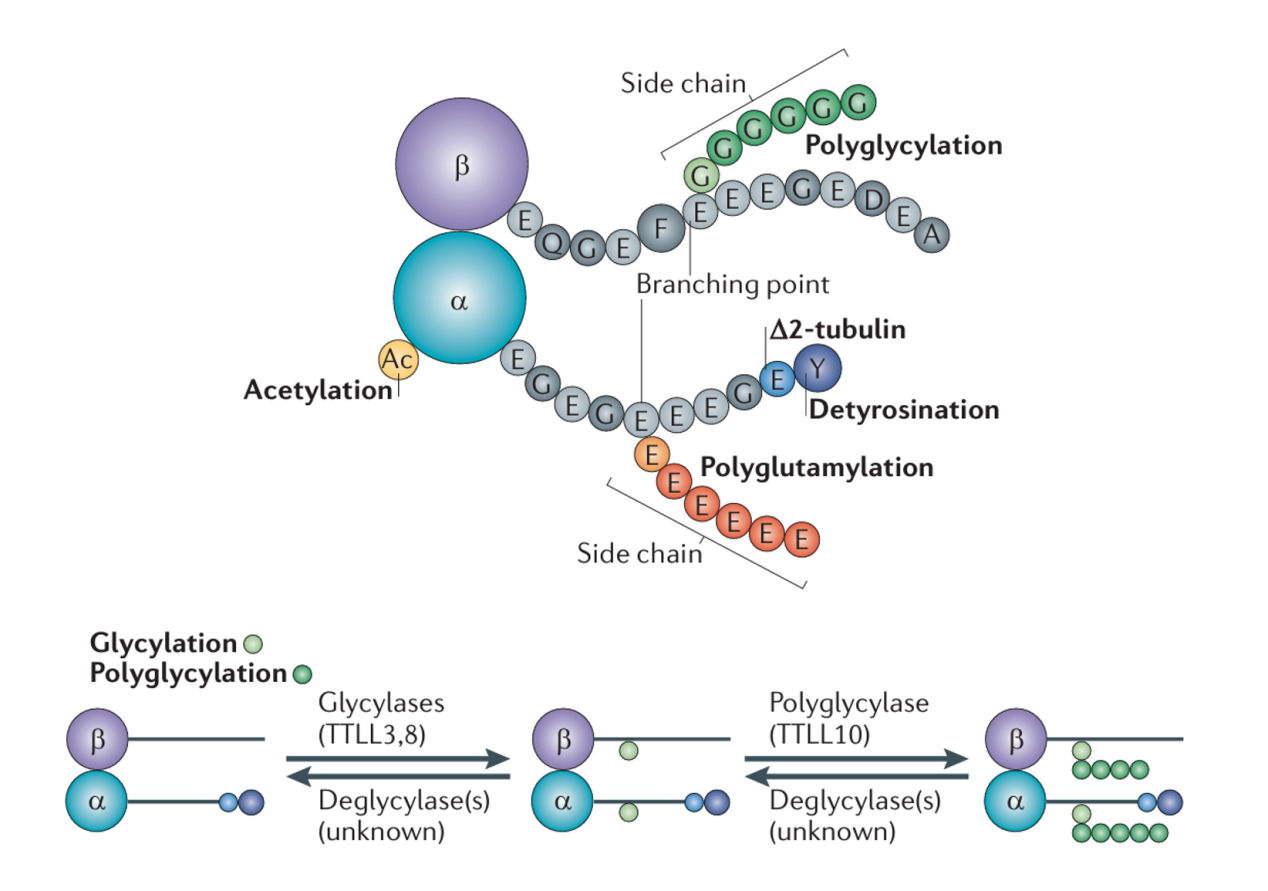Polyglycylation Analysis Service
Polyglycylation refers to the covalent addition of multiple glycine residues to tubulin and other substrates, a modification that directly regulates microtubule dynamics, cellular architecture, and signaling events. Polyglycylation Analysis Service at MtoZ Biolabs provides a comprehensive solution for the systematic study of this rare but biologically significant post-translational modification (PTM).
1. Target Protein Polyglycylation Analysis
For specific protein studies, MtoZ Biolabs provides targeted analysis of polyglycylation to identify glycylation sites, quantify chain length, and evaluate modification heterogeneity. Using LC-MS/MS, Western blotting, and immunoprecipitation, we deliver precise site-specific detection and functional correlations, particularly for proteins involved in microtubule regulation and cellular processes.
2. Polyglycylation Proteomics
For large-scale studies, polyglycylation proteomics enables comprehensive profiling of polyglycylated proteins across complex biological samples. High-resolution LC-MS/MS and HPLC separation techniques, combined with bioinformatics analysis, allow us to map polyglycylation patterns across the proteome, linking modifications to cellular functions, pathways, and disease mechanisms.
What is Polyglycylation?
Polyglycylation was first identified in tubulin, where chains of glycine residues are added to glutamate side chains in the C-terminal tails. This unique modification regulates the structural and functional diversity of microtubules, influencing intracellular transport, cilia and flagella motility, and neuronal development. Unlike monoglycylation, which introduces a single glycine residue, polyglycylation involves chain elongation that can dramatically alter microtubule properties. Enzymatically, polyglycylation is mediated by tubulin tyrosine ligase–like (TTLL) enzymes, which generate and extend glycine side chains. Dysregulation of this process has been linked to neurodegeneration, ciliopathies, infertility, and cancer progression.

Janke, C. et al. Nat Rev Mol Cell Biol. 2011.
Figure 1. Tubulin Polyglycylation and Modifying Enzymes
Given the complexity, low abundance, and dynamic regulation of polyglycylation, robust analytical approaches are required to achieve accurate detection and characterization. At MtoZ Biolabs, we have established an advanced workflow that integrates enrichment, high-resolution mass spectrometry, and complementary validation methods to provide comprehensive insight into polyglycylation events.
Analysis Workflow
1. Protein Extraction and Digestion
Proteins are isolated from cells, tissues, or biofluids under optimized conditions that maintain the stability of polyglycylation. Samples undergo reduction, alkylation, and enzymatic digestion to generate peptides suitable for downstream analysis while preserving the integrity of modification sites.
2. Peptide Enrichment
To increase sensitivity, polyglycylated peptides are selectively enriched using antibody-based capture or chemical labeling strategies. These approaches improve detection efficiency, particularly for low-abundance or transient modifications.
3. Detection and Validation
Enriched peptides are analyzed using high-resolution LC-MS/MS, complemented by immunoprecipitation and Western blotting. This combined approach ensures accurate identification of peptide sequences, localization of modification sites, and independent confirmation of polyglycylation events.
4. Data Analysis and Reporting
Advanced database searching and algorithmic tools are applied to validate spectra, assign modification sites, and characterize chain heterogeneity. Functional annotation and pathway mapping are then performed, providing researchers with detailed insights.
Sample Submission Suggestions
1. Sample Types: Cell lysates, tissue extracts, biofluids, or purified proteins. For other sample types, please contact us in advance for tailored preparation guidance.
2. Storage: Store at -80°C; avoid repeated freeze-thaw cycles.
3. Shipping: Send frozen samples on dry ice; lyophilized proteins may be shipped at room temperature.
Service Advantages
✅ Advancement: Polyglycylation Analysis Service is supported by an advanced analytical platform that ensures state-of-the-art performance.
✅ High Quality: Comprehensive reports generated through AI-driven bioinformatics that integrate proteomics datasets with functional annotation.
✅ Comprehensiveness: End-to-end solutions covering sample preparation, enrichment, MS detection, and pathway mapping.
✅ Professionalism: Backed by an experienced scientific team providing expert technical support and biological interpretation.
✅ Customization: Flexible workflows tailored to specific project goals, sample types, and research challenges.
Applications
1. Microtubule Regulation and Protein Interactions
The Polyglycylation Analysis Service enables detailed investigation of how polyglycylation affects microtubule stability, polymerization dynamics, and the recruitment of microtubule-associated proteins, providing critical insights into cytoskeletal regulation.
2. Cellular Motility and Developmental Processes
Analysis of polyglycylation offers valuable data on its role in controlling cell polarity, adhesion, and migratory capacity, which are central to processes such as organogenesis, wound repair, and tumor invasion.
3. Cross-talk with Other PTMs
By integrating polyglycylation profiling with other tubulin modifications, including polyglutamylation and acetylation, this service helps reveal complex modification networks and their collective influence on cellular function.
4. Neurobiology and Synaptic Regulation
Polyglycylation analysis contributes to the study of neuronal maturation, axonal transport, and synaptic signaling, shedding light on its involvement in the pathogenesis of neurodevelopmental and neurodegenerative disorders.
Deliverables
1. Comprehensive Experimental Details
2. Materials, Instruments, and Methods
3. Total Ion Chromatogram & Quality Control Assessment
4. Data Analysis, Preprocessing, and Estimation
5. Bioinformatics Analysis
6. Raw Data Files
By combining high-resolution analytical platforms with expert scientific interpretation, our Polyglycylation Analysis Service supports both focused protein studies and proteome-wide screening, enabling researchers to explore the molecular roles of polyglycylation with clarity and confidence. Free project evaluation, welcome to learn more details.








